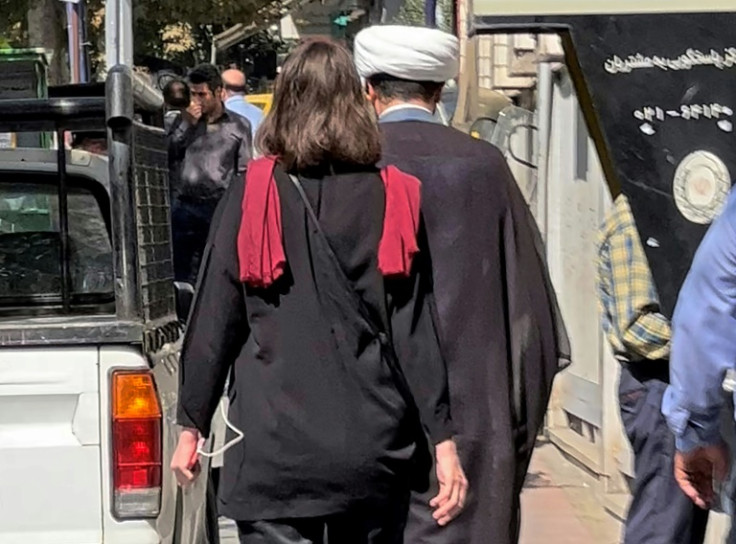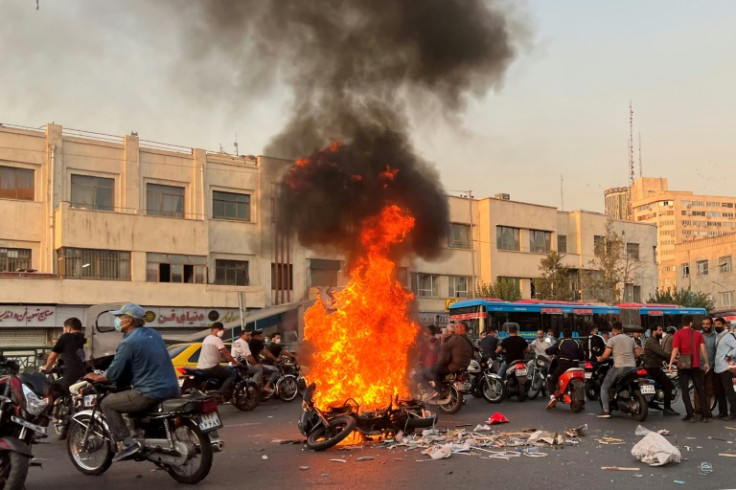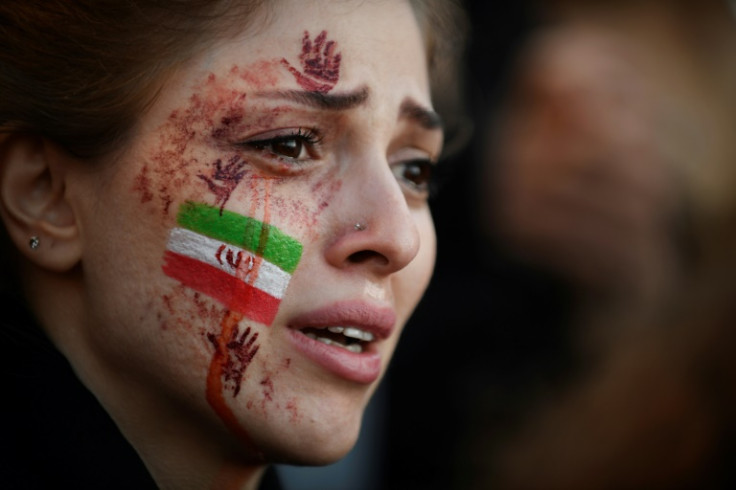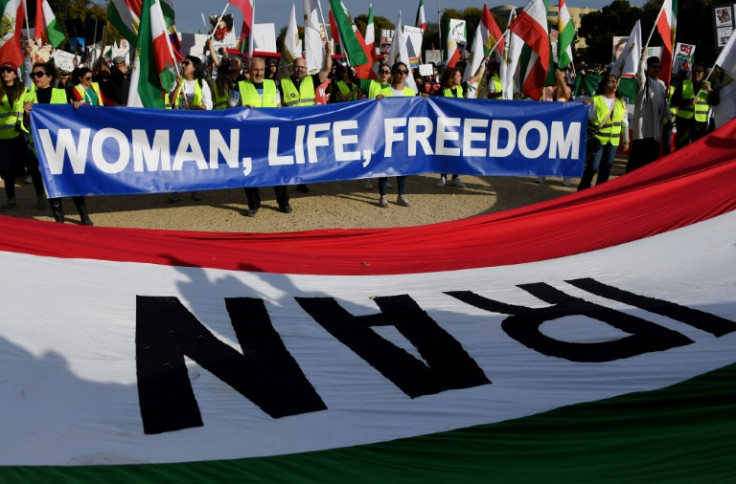Defiant Iranians Rally Again In Protests Fuelled By 'Brutal' Crackdown

Iranians took to the streets around the country for a second successive night to protest against the killings of youths in a widely documented crackdown on demonstrations sparked by Mahsa Amini's death.
The clerical state has been gripped by six weeks of protests that erupted when Amini, 22, died in custody after her arrest for an alleged breach of Iran's strict dress rules for women based on Islamic sharia law.
Security forces have struggled to contain the women-led protests that have evolved into a broader campaign to end the Islamic republic founded in 1979.
"This is the year of blood, Seyed Ali will be toppled!" hundreds of protesters chanted in the west Tehran neighbourhood of Chitgar late Thursday, in an online video verified by AFP.
The fresh rallies came as people gathered to mourn young demonstrators killed in the crackdown.
Security forces on Thursday shot dead at least three protesters in Mahabad and another two in Baneh, both near Iran's western border with Iraq, said Hengaw, a Norway-based human rights group.
Amnesty International said "unlawful killings" by Iran's security forces had claimed the lives of at least eight people in four provinces within 24 hours, in a statement late Thursday.
The deadly gunfire came after mourners paying tribute to Ismail Mauludi, a 35-year-old protester killed on Wednesday night, left his funeral and made their way towards the governor's office, it said.
"Death to the dictator," protesters yelled, using a slogan aimed at Iran's supreme leader Ayatollah Ali Khamenei, as the Mahabad governor's office burned, in an online video verified by AFP.
Other verified footage showed clashes near the grave of 16-year-old Nika Shahkarami, outside the western city of Khorramabad, where dozens of people were marking the end of the traditional 40-day mourning period since she was killed by security forces.
"I'll kill, I'll kill, whoever killed my sister," they could be heard chanting, in a video posted on Twitter by the US-based Human Rights Activist News Agency.
Dozens of men were seen hurling projectiles under fire as they drove back security forces in riot gear on a bridge near Shahkarami's tomb.
The latest demonstrations came despite a crackdown that the Oslo-based Iran Human Rights group says has already killed at least 141 protesters, including more than two dozen children.
At least another 93 people were separately killed during protests that erupted in the southeastern city of Zahedan on September 30 over the reported rape of a teenage girl by a police commander, IHR says.
The protests were held in defiance of warnings from Khamenei and ultra-conservative President Ebrahim Raisi, who appeared to try to link the Amini protests to a mass shooting at a Shiite Muslim shrine in the southern city of Shiraz after Wednesday evening prayers that state media said killed at least 15 worshippers.
But the protests triggered by Amini's death on September 16 show no signs of dwindling, inflamed by public outrage over the crackdown that has claimed the lives of many other young women and girls.
Analysts say the Iranian authorities have sought to quell the protests through various tactics, possibly in a bid to avoid fuelling yet more anger among the public.
"I doubt that the security forces have ruled out conducting a larger-scale violent crackdown," said Henry Rome, an Iran specialist at the Washington Institute.
"For now they appear to be trying other techniques -- arrests and intimidation, calibrated internet shutdowns, killing some protesters, and fuelling uncertainty and an overall securitised environment," he told AFP.
"They may be making the calculation that more killing would encourage, rather than deter, protesters -- if that judgement shifts, then the situation would likely become even more violent."
Amnesty International called for urgent action to halt the bloodshed.
"Failure to act decisively will only embolden the Iranian authorities to further crackdown against mourners and protesters set to gather in the coming days during commemorations marking 40 days since the first deaths of protesters," it said.
The UN special rapporteur on human rights in Iran on Thursday decried the "brutality" of Iran's regime and called for an international mechanism to investigate scores of deaths.
"In the absence of any domestic channels of accountability... the international community has a responsibility... to take action to address impunity for human rights violations in Iran," said Javaid Rehman.
An official Iranian medical report issued on October 8 concluded Amini's death was caused by illness, due to "surgery for a brain tumour at the age of eight", and not police brutality.
But lawyers acting for her family have rejected the findings and called for a re-examination of her death.



© Copyright AFP 2024. All rights reserved.





















